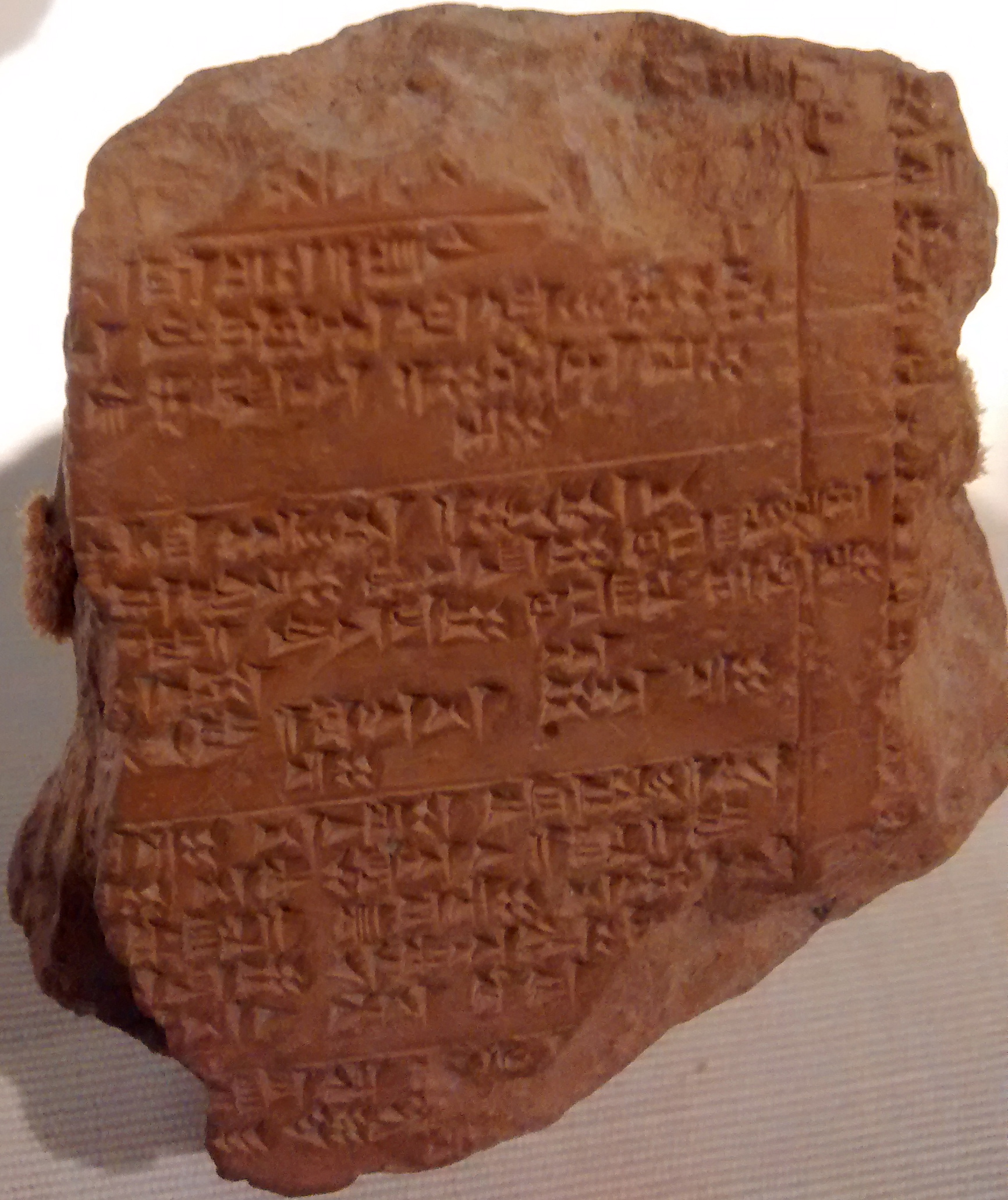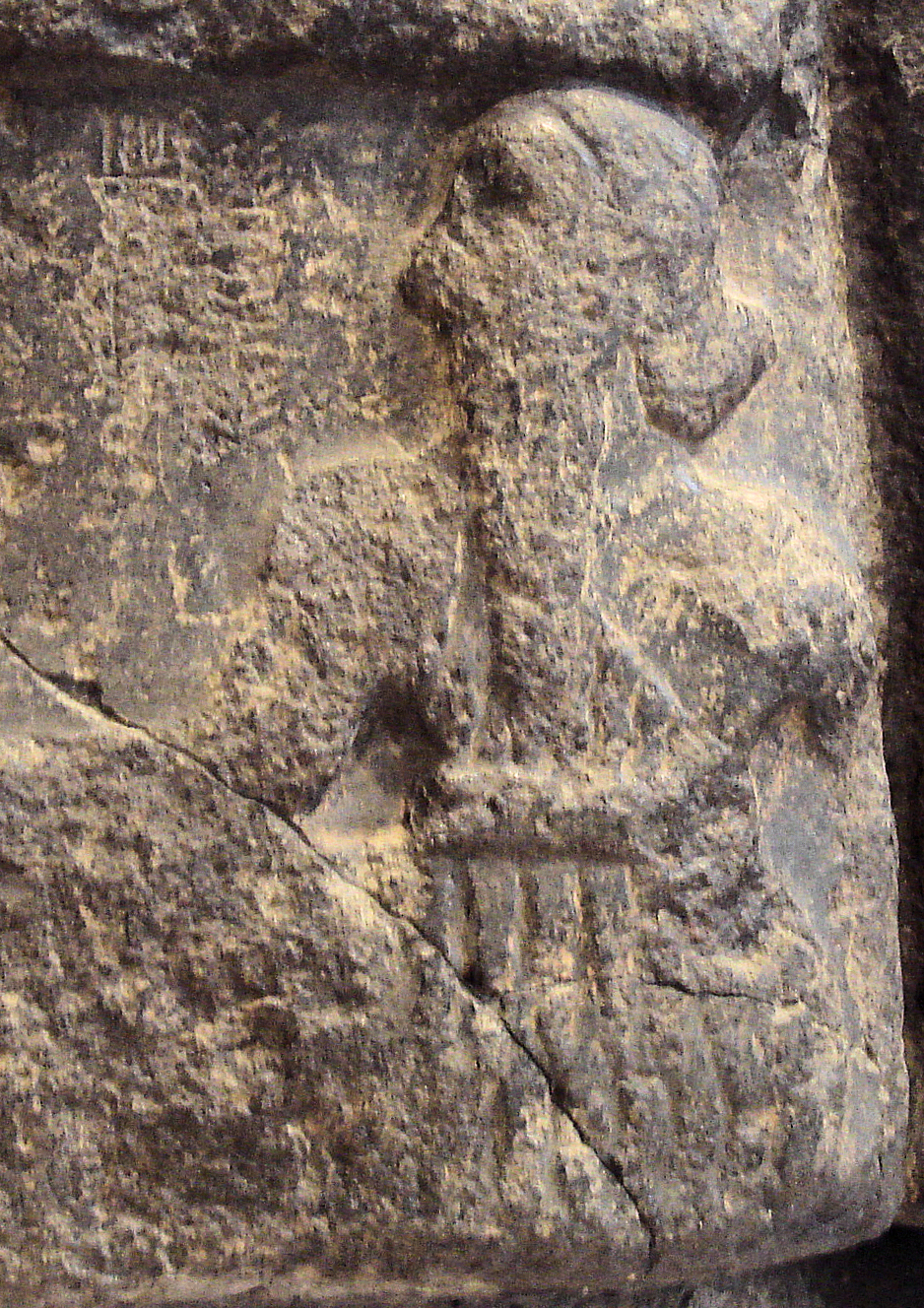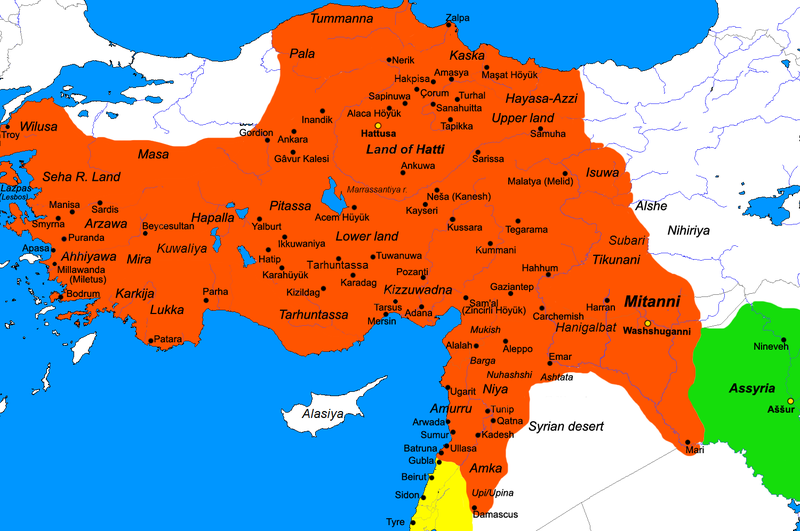|
Hattians
The Hattians () were an ancient Bronze Age people that inhabited the land of ''Hatti'', in central Anatolia (modern Turkey). They spoke a distinctive Hattian language, which was neither Semitic nor Indo-European. Hattians are attested by archeological records from the Early Bronze Age and by historical references in later Hittite and other sources. Their main centre was the city of Hattush. Faced with Hittite expansion (since 2000 BC), Hattians were gradually absorbed (by 1700 BC) into the new political and social order, imposed by the Hittites, who were one of the Indo-European-speaking Anatolian peoples. The Hittites kept the country name ("land of Hatti") unchanged, which also became the main designation for the Hittite state. Terminology Complex questions related to etymology of endonymic terms for Hattians, their land, language and capital city (Hatti, Hattili, Hattush) are debated among scholars. Later conquerors (Hittites) did not change the name of the city (Hat ... [...More Info...] [...Related Items...] OR: [Wikipedia] [Google] [Baidu] |
Anatolia
Anatolia, tr, Anadolu Yarımadası), and the Anatolian plateau, also known as Asia Minor, is a large peninsula in Western Asia and the westernmost protrusion of the Asian continent. It constitutes the major part of modern-day Turkey. The region is bounded by the Turkish Straits to the northwest, the Black Sea to the north, the Armenian Highlands to the east, the Mediterranean Sea to the south, and the Aegean Sea to the west. The Sea of Marmara forms a connection between the Black and Aegean seas through the Bosporus and Dardanelles straits and separates Anatolia from Thrace on the Balkan peninsula of Southeast Europe. The eastern border of Anatolia has been held to be a line between the Gulf of Alexandretta and the Black Sea, bounded by the Armenian Highlands to the east and Mesopotamia to the southeast. By this definition Anatolia comprises approximately the western two-thirds of the Asian part of Turkey. Today, Anatolia is sometimes considered to be synonymous with Asian ... [...More Info...] [...Related Items...] OR: [Wikipedia] [Google] [Baidu] |
Hatti (land Of The Hittites)
The Hittites () were an Anatolian people who played an important role in establishing first a kingdom in Kussara (before 1750 BC), then the Kanesh or Nesha kingdom (c. 1750–1650 BC), and next an empire centered on Hattusa in north-central Anatolia (around 1650 BC). This empire reached its height during the mid-14th century BC under Šuppiluliuma I, when it encompassed an area that included most of Anatolia as well as parts of the northern Levant and Upper Mesopotamia. Between the 15th and 13th centuries BC, the Empire of Hattusa—in modern times conventionally called the Hittite Empire—came into conflict with the New Kingdom of Egypt, the Middle Assyrian Empire and the empire of Mitanni for control of the Near East. The Middle Assyrian Empire eventually emerged as the dominant power and annexed much of the Hittite Empire, while the remainder was sacked by Phrygian newcomers to the region. After BC, during the Late Bronze Age collapse, the Hittites splintered into seve ... [...More Info...] [...Related Items...] OR: [Wikipedia] [Google] [Baidu] |
Hittites
The Hittites () were an Anatolian people who played an important role in establishing first a kingdom in Kussara (before 1750 BC), then the Kanesh or Nesha kingdom (c. 1750–1650 BC), and next an empire centered on Hattusa in north-central Anatolia (around 1650 BC). This empire reached its height during the mid-14th century BC under Šuppiluliuma I, when it encompassed an area that included most of Anatolia as well as parts of the northern Levant and Upper Mesopotamia. Between the 15th and 13th centuries BC, the Empire of Hattusa—in modern times conventionally called the Hittite Empire—came into conflict with the New Kingdom of Egypt, the Middle Assyrian Empire and the empire of Mitanni for control of the Near East. The Middle Assyrian Empire eventually emerged as the dominant power and annexed much of the Hittite Empire, while the remainder was sacked by Phrygian newcomers to the region. After BC, during the Late Bronze Age collapse, the Hittites splintered in ... [...More Info...] [...Related Items...] OR: [Wikipedia] [Google] [Baidu] |
Pamba (king)
Pamba was king of Hatti, an ancient Bronze Age state from the pre- Hittite period, situated in central regions of Anatolia, modern Turkey. He is mentioned in only one source, a Hittite version (from 1400 BCE) of an older Akkadian story, that narrates several events related to much earlier times, taking place during the rule of great king Naram-Sin of Akkad (23rd century BCE). The story describes a war between the Akkadian ruler and an alliance of 17 kings, and the Hittite version includes Pamba of Hatti among those kings. That inclusion is not attested in Akkadian versions of the story, nor in contemporary sources, that would date from the period of the Akkadian Empire, but some scholars hold that Hittite version (from 1400 BCE) is conditionally reliable, and probably derived from some local sources. In that case, the narrative would contain a trustworthy tradition, and thus provide a base for an assumption that the ancient Kingdom of Hatti existed already during the period of ... [...More Info...] [...Related Items...] OR: [Wikipedia] [Google] [Baidu] |
Hattian Language
Hattic, or Hattian, was a non-Indo-European agglutinative language spoken by the Hattians in Asia Minor in the 2nd millennium BC. Scholars call the language "Hattic" to distinguish it from Hittite, the Indo-European language of the Hittite Empire. The Hittites referred to the language as ''"hattili"'' (there are no attestations of the name of the language in Hattic itself). The name is doubtlessly related to the Assyrian and Egyptian designation of an area west of the Euphrates as "Land of the Hatti" (Khatti). The heartland of the oldest attested language of Anatolia, before the arrival of Hittite-speakers, ranged from Hattusa, then called "Hattus", northward to Nerik. Other cities mentioned in Hattic include Tuhumiyara and Tissaruliya. Hittite-speakers conquered Hattus from Kanesh to its south in the 18th century BC. They eventually absorbed or replaced the Hattic-speakers (Hattians) but retained the name ''Hatti'' for the region. The name of the inhabitants of that area is li ... [...More Info...] [...Related Items...] OR: [Wikipedia] [Google] [Baidu] |
Hittite Language
Hittite (natively / "the language of Neša", or ''nešumnili'' / "the language of the people of Neša"), also known as Nesite (''Nešite'' / Neshite, Nessite), is an extinct Indo-European language that was spoken by the Hittites, a people of Bronze Age Anatolia who created an empire centred on Hattusa, as well as parts of the northern Levant and Upper Mesopotamia. The language, now long extinct, is attested in cuneiform, in records dating from the 17th (Anitta text) to the 13th centuries BCE, with isolated Hittite loanwords and numerous personal names appearing in an Old Assyrian context from as early as the 20th century BCE, making it the earliest-attested use of the Indo-European languages. By the Late Bronze Age, Hittite had started losing ground to its close relative Luwian. It appears that in the 13th century BCE, Luwian was the most widely spoken language in the Hittite capital, Hattusa. After the collapse of the Hittite New Kingdom during the more general Late Bro ... [...More Info...] [...Related Items...] OR: [Wikipedia] [Google] [Baidu] |
Turkey
Turkey ( tr, Türkiye ), officially the Republic of Türkiye ( tr, Türkiye Cumhuriyeti, links=no ), is a list of transcontinental countries, transcontinental country located mainly on the Anatolia, Anatolian Peninsula in Western Asia, with a East Thrace, small portion on the Balkans, Balkan Peninsula in Southeast Europe. It shares borders with the Black Sea to the north; Georgia (country), Georgia to the northeast; Armenia, Azerbaijan, and Iran to the east; Iraq to the southeast; Syria and the Mediterranean Sea to the south; the Aegean Sea to the west; and Greece and Bulgaria to the northwest. Cyprus is located off the south coast. Turkish people, Turks form the vast majority of the nation's population and Kurds are the largest minority. Ankara is Turkey's capital, while Istanbul is its list of largest cities and towns in Turkey, largest city and financial centre. One of the world's earliest permanently Settler, settled regions, present-day Turkey was home to important Neol ... [...More Info...] [...Related Items...] OR: [Wikipedia] [Google] [Baidu] |
Anatolian Languages
The Anatolian languages are an extinct branch of Indo-European languages that were spoken in Anatolia, part of present-day Turkey. The best known Anatolian language is Hittite, which is considered the earliest-attested Indo-European language. Undiscovered until the late 19th and 20th centuries, they are often believed to be the earliest branch to have split from the Indo-European family. Once discovered, the presence of laryngeal consonants ''ḫ'' and ''ḫḫ'' in Hittite and Luwian provided support for the laryngeal theory of Proto-Indo-European linguistics. While Hittite attestation ends after the Bronze Age, hieroglyphic Luwian survived until the conquest of the Neo-Hittite kingdoms by Assyria, and alphabetic inscriptions in Anatolian languages are fragmentarily attested until the early first millennium AD, eventually succumbing to the Hellenization of Anatolia. Origins The Anatolian branch is often considered the earliest to have split from the Proto-Indo-European l ... [...More Info...] [...Related Items...] OR: [Wikipedia] [Google] [Baidu] |
Anatolian Peoples
The Anatolians were Indo-European-speaking peoples of the Anatolian Peninsula in present-day Turkey, identified by their use of the Anatolian languages. These peoples were among the oldest Indo-European ethnolinguistic groups and one of the most archaic, because Anatolians were among the first Indo-European peoples to separate from the Proto-Indo-European community that gave origin to the individual Indo-European peoples. History Origins Together with the Proto-Tocharians, who migrated eastward, the Anatolian peoples constituted the first known waves of Indo-European emigrants out of the Eurasian steppe. It is likely that they reached Anatolia from the north, via the Balkans or the Caucasus, in the 3rd millennium BC. This movement has yet to be documented archaeologically. Although they had wagons, they probably emigrated before Indo-Europeans had learned to use chariots for war. Comparison of Hittite agricultural terms with those of other Indo-European subgroups indicate ... [...More Info...] [...Related Items...] OR: [Wikipedia] [Google] [Baidu] |
Akkadians
The Akkadian Empire () was the first ancient empire of Mesopotamia after the long-lived civilization of Sumer. It was centered in the city of Akkad () and its surrounding region. The empire united Akkadian and Sumerian speakers under one rule. The Akkadian Empire exercised influence across Mesopotamia, the Levant, and Anatolia, sending military expeditions as far south as Dilmun and Magan (modern Saudi Arabia, Bahrain, and Oman) in the Arabian Peninsula.Mish, Frederick C., Editor in Chief. "Akkad" ''Webster’s Ninth New Collegiate Dictionary''. ninth ed. Springfield, MA: Merriam-Webster 1985. ). The Akkadian Empire reached its political peak between the 24th and 22nd centuries BC, following the conquests by its founder Sargon of Akkad. Under Sargon and his successors, the Akkadian language was briefly imposed on neighboring conquered states such as Elam and Gutium. Akkad is sometimes regarded as the first empire in history, though the meaning of this term is not precise, and ... [...More Info...] [...Related Items...] OR: [Wikipedia] [Google] [Baidu] |
Akkadian Empire
The Akkadian Empire () was the first ancient empire of Mesopotamia after the long-lived civilization of Sumer. It was centered in the city of Akkad (city), Akkad () and its surrounding region. The empire united Akkadian language, Akkadian and Sumerian language, Sumerian speakers under one rule. The Akkadian Empire exercised influence across Mesopotamia, the Levant, and Anatolia, sending military expeditions as far south as Dilmun and Magan (civilization), Magan (modern Saudi Arabia, Bahrain, and Oman) in the Arabian Peninsula.Mish, Frederick C., Editor in Chief. "Akkad" ''Webster’s Ninth New Collegiate Dictionary''. ninth ed. Springfield, MA: Merriam-Webster 1985. ). The Akkadian Empire reached its political peak between the 24th and 22nd centuries BC, following the conquests by its founder Sargon of Akkad. Under Sargon and his successors, the Akkadian language was briefly imposed on neighboring conquered states such as Elam and Gutian people, Gutium. Akkad is sometimes regar ... [...More Info...] [...Related Items...] OR: [Wikipedia] [Google] [Baidu] |
Hattush
Hattusa (also Ḫattuša or Hattusas ; Hittite: URU''Ḫa-at-tu-ša'', Turkish: Hattuşaş , Hattic: Hattush) was the capital of the Hittite Empire in the late Bronze Age. Its ruins lie near modern Boğazkale, Turkey, within the great loop of the Kızılırmak River (Hittite: ''Marashantiya''; Greek: '' Halys''). Hattusa was added to the UNESCO World Heritage Site list in 1986. Surroundings The landscape surrounding the city included rich agricultural fields and hill lands for pasture as well as woods. Smaller woods are still found outside the city, but in ancient times, they were far more widespread. This meant the inhabitants had an excellent supply of timber when building their houses and other structures. The fields provided the people with a subsistence crop of wheat, barley and lentils. Flax was also harvested, but their primary source for clothing was sheep wool. They also hunted deer in the forest, but this was probably only a luxury reserved for the nobility. Domes ... [...More Info...] [...Related Items...] OR: [Wikipedia] [Google] [Baidu] |








